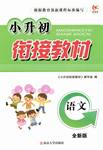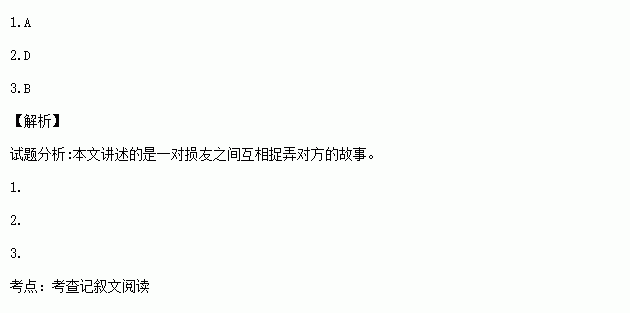题目内容
Robert and Peter study in the same university. They do everything together and help each other. But they often play jokes on each other. The school year was over last month and they decided to travel through the country in America. They drove a car and could stop wherever they were interested in and started whenever they wanted. Of course they enjoyed themselves. It was very hot one day and they were both hungry and thirsty. They stopped in front of a restaurant by the road. They came in, sat down at a table and ordered some dishes. Robert looked around and found there was a small bowl on the table. He thought there was some ice cream in it and took a spoonful of it and put it into his mouth. Immediately he knew it was mustard(芥末),but it was too late. Tears ran down his face, but he pretended nothing had happened. The other young man, seeing his friend crying, asked, “What are you crying about, Robert?” “I’m thinking of my father who was hanged twenty years ago,” was his reply.
After a while, Peter made the same mistake. Tears ran down his cheeks, too. And his friend asked him why.
“I wonder why your father hadn’t been hanged before he got married!”
1.Robert didn’t tell Peter it was some mustard in the bowl because .
A. he wanted his friend to repeat the mistake.
B. he didn’t know his friend hated it.
C. he thought his friend knew what it was.
D. he thought his friend was interested in it.
2.What do Peter’s last words mean?
A. Robert’s father would be hanged earlier.
B. It was wrong to play a joke on a friend.
C. He must give his friend a lesson.
D. His friend wouldn’t be born.
3.The writer mainly wants to tell us________ in this passage.
A. not to trust your friend.
B. a joke
C. not to mistake mustard for Ice cream.
D. it’s wrong to lie to friends
 学而优衔接教材南京大学出版社系列答案
学而优衔接教材南京大学出版社系列答案
